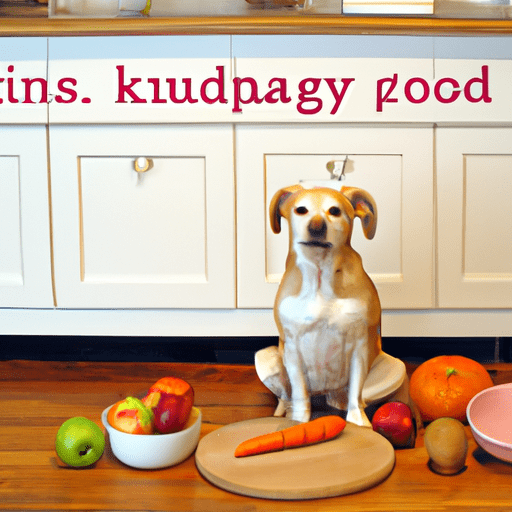As a caregiver, it’s natural to want the best for your furry friend. You might wonder, “Can I share some of my food with my dog?” While some human foods can be toxic to dogs, there are many that can offer health benefits. Here’s a detailed look at what human food is good for dogs.
1. Protein-Rich Foods
Dogs, like humans, need a balanced diet, and protein is a crucial part of this. Here are some protein-rich foods that you can safely share with your dog:
- Chicken – Cooked, boneless chicken is a great source of protein for dogs.
- Turkey – Like chicken, turkey is a high-protein food. Remove the skin and any seasoning before serving.
- Fish – Fish such as salmon and tuna provide omega-3 fatty acids, which can benefit your dog’s skin, coat, and immune system. Always cook fish thoroughly and remove any bones.
2. Fruits and Vegetables
Fruits and vegetables are not only safe for dogs but also beneficial. They provide vitamins, minerals, and fiber. Here are a few examples:
- Apples – Apples are high in fiber and vitamin A and C. Remember to remove the seeds as they contain cyanide.
- Carrots – Carrots are low in calories and high in fiber and vitamins.
- Blueberries – Blueberries are a superfood rich in antioxidants, which are good for your dog’s health.
3. Grains
Whole grains are another group of foods that can be beneficial to your dog. They provide dietary fiber, which can aid digestion. Here are some examples:
- Brown Rice – This is a healthy source of carbohydrates, and it’s gentle on a dog’s digestive system.
- Oats – Cooked oats are a great source of fiber and can help your dog feel full.
4. Dairy
Some dogs are lactose intolerant, so start with small amounts to see how your dog reacts. If they tolerate it well, dairy can be a good source of protein and calcium.
- Cheese – In small quantities, cheese can be a great treat for dogs.
- Yogurt – Plain, unsweetened yogurt can help improve your dog’s digestion, thanks to the probiotics it contains.
5. Other Foods
- Peanut Butter – Unsalted and without added sugar or artificial sweeteners, peanut butter can be a good source of protein and healthy fats.
- Pumpkin – Cooked pumpkin is safe for dogs and can help with digestion.
| Food Group | Examples |
|---|---|
| Protein-rich Foods | Chicken, Turkey, Fish |
| Fruits and Vegetables | Apples, Carrots, Blueberries |
| Grains | Brown Rice, Oats |
| Dairy | Cheese, Yogurt |
| Other Foods | Peanut Butter, Pumpkin |
6. Foods to Avoid
While many human foods are safe for dogs, there are some you should avoid, including chocolate, grapes, onions, garlic, and foods with artificial sweeteners.
7. How to Introduce New Foods
When introducing any new food to your dog’s diet, start with small amounts. Monitor your dog for any changes in behavior or digestion.
8. FAQ
Q: Can I feed my dog raw meat?
A: While some people advocate for a raw diet, it can pose risks, such as bacterial infections. It’s generally safer to cook meat before giving it to your dog.
Q: Can dogs eat eggs?
A: Yes, cooked eggs are safe for dogs and are a good source of protein.
Q: How much human food should I give my dog?
A: Treats, including human food, should make up no more than 10% of your dog’s daily calories. Always consult with your vet before making significant changes to your dog’s diet.
Remember, every dog is unique and may react differently to certain foods. Always consult your veterinarian before introducing new foods into your dog’s diet.



